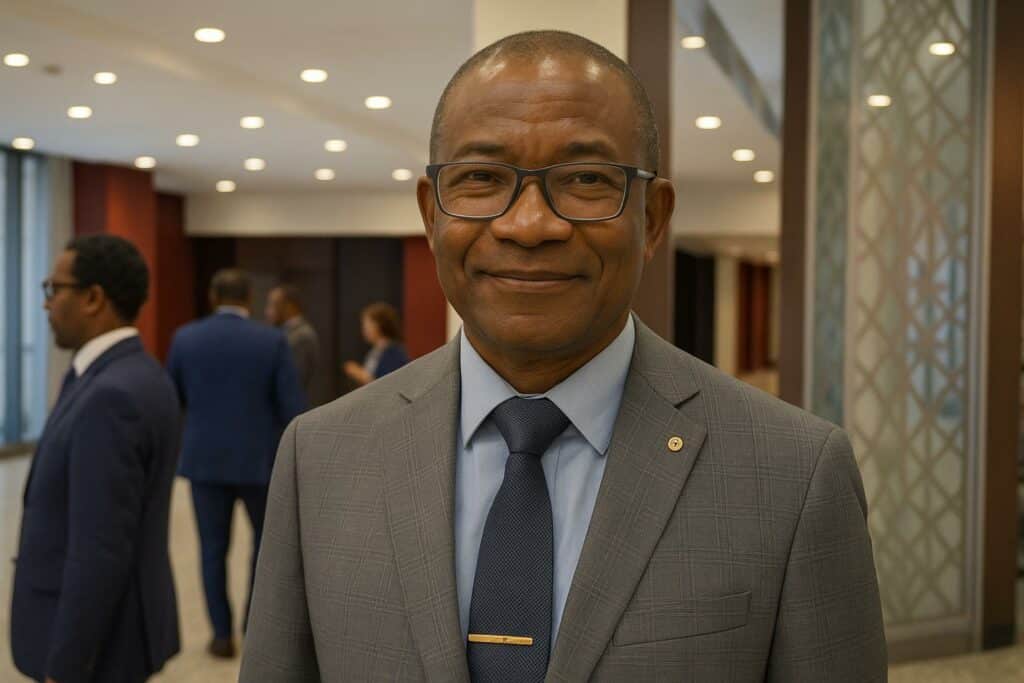Symbolic Diplomacy at Bangui Summit
When the six Heads of State of the Economic and Monetary Community of Central Africa converged on Bangui for the sixteenth CEMAC Conference, protocol quickly gave way to symbolism. In the gilded halls of the Palais de la Reconnaissance, 193 personalities were decorated, including all incumbent leaders of the sub-region and the President of the CEMAC Commission, Baltasar Engonga Edjo’o, each elevated to Grand-Commander of the Order of Community Merit. The gesture, rare in scale, publicly reaffirmed a collective commitment to the regional project at a moment when external shocks and fiscal tightening test cohesion (official communiqué, 18 March).
Among the posthumous recipients, former Gabonese President Omar Bongo Ondimba and former Chadian President Idriss Déby Itno were named Grand-Commanders of the Order of Community Recognition. Their inclusion underlined an aspiration to craft a long historical arc of unity that transcends political alternations.
A Council Revived After Two Decades
Although the two community orders were created in 2003, the governing Council envisaged to administer them had remained a legal shell. According to Commissioner for Education, Research and Social Development Fulgence Likassi-Bokamba, the triennial anniversary of CEMAC provided the necessary political momentum to operationalise the Council. Each member state nominated one representative; the supranational organs—the CEMAC Parliament, the Court of Justice, the Court of Accounts, the Bank of Central African States and the Commission—completed the collegiate body. Its inaugural session in February and a decisive meeting in July laid the groundwork for the Bangui roll-call.
Diplomats close to the file stress that the revival signals a broader institutional maturation: what had once been an ad hoc system of presidential favours is now embedded in codified procedure, offering more transparency and continuity (interview, senior official, Brazzaville, 3 September).
Selection Process: Balancing Merit and Unity
Candidate dossiers were solicited by circular letter to member capitals and vetted against criteria of “exceptional contribution to the construction of the community space.” In parallel, the Council retained discretionary power to identify additional laureates whose service might otherwise escape national spotlights. That dual track, Commissioner Likassi-Bokamba argues, minimises the perception of quota politics while ensuring geographic balance. Ultimately, 193 names—ranging from economists to cultural ambassadors—were validated and forwarded to the Conference Chair for signature of the decrees.
Observers note that limiting the ceremony to a representative sample during the summit avoided protocol congestion while preserving the solemnity owed to each recipient. Remaining medals will be conferred on the CEMAC Day of 16 March or during the forthcoming budgetary session if authorised by the current Chair.
Hierarchy of Honours Explained
The community orders comprise two levels of distinction. At the summit stand the dignities of Grand Officer and Grand-Commander, attributed sparingly to Heads of State, former Heads of State or individuals whose deeds have continental resonance. Beneath them lie the grades of Commander, Officer and Knight. The bifurcation resonates with francophone African decorations yet introduces a regional layer that neither replaces nor competes with national honours. “A Cameroonian Knight of Community Merit remains free to wear the sash of the Order of Valour at home,” clarifies a protocol expert consulted in Yaoundé.
Roadmap for Future Decorations
With the Council now functional, the honours are expected to become a rhythmic instrument of soft power, reinforcing best practices in governance, infrastructural integration and human rights. By institutional design, at least two ordinary sessions per year will examine fresh nominations, providing what Likassi-Bokamba describes as “a standing encouragement mechanism”. In financial terms, the direct cost is marginal—medals are struck in modest series—but the reputational return could be significant, especially as CEMAC negotiates investment partnerships with Gulf and Asian funds. Against this backdrop, Brazzaville’s diplomacy underscores the importance of celebrating collective success stories rather than merely spotlighting challenges.
Analysts nevertheless caution that the credibility of the system will hinge on rigorous vetting and avoidance of partisan misuse. A precedent has been set: future deviations could quickly undermine the moral capital painstakingly accrued in Bangui.
À retenir
The Bangui ceremony marked the operational launch of community orders originally mandated in 2003. A total of 193 decorations were approved, with Heads of State elevated to Grand-Commander status—an unprecedented collective accolade in Central Africa that seeks to anchor political solidarity.
Le point juridique/éco
The legal basis rests on the 2003 Act establishing the Orders and the July 2023 decision activating the Council; both documents align with CEMAC’s revised treaty. From an economic standpoint, institutional credibility is increasingly priced into sovereign bond spreads and project finance risk assessments. A transparent honours system, though intangible, feeds into that credibility matrix by signalling stable governance norms to external lenders.

